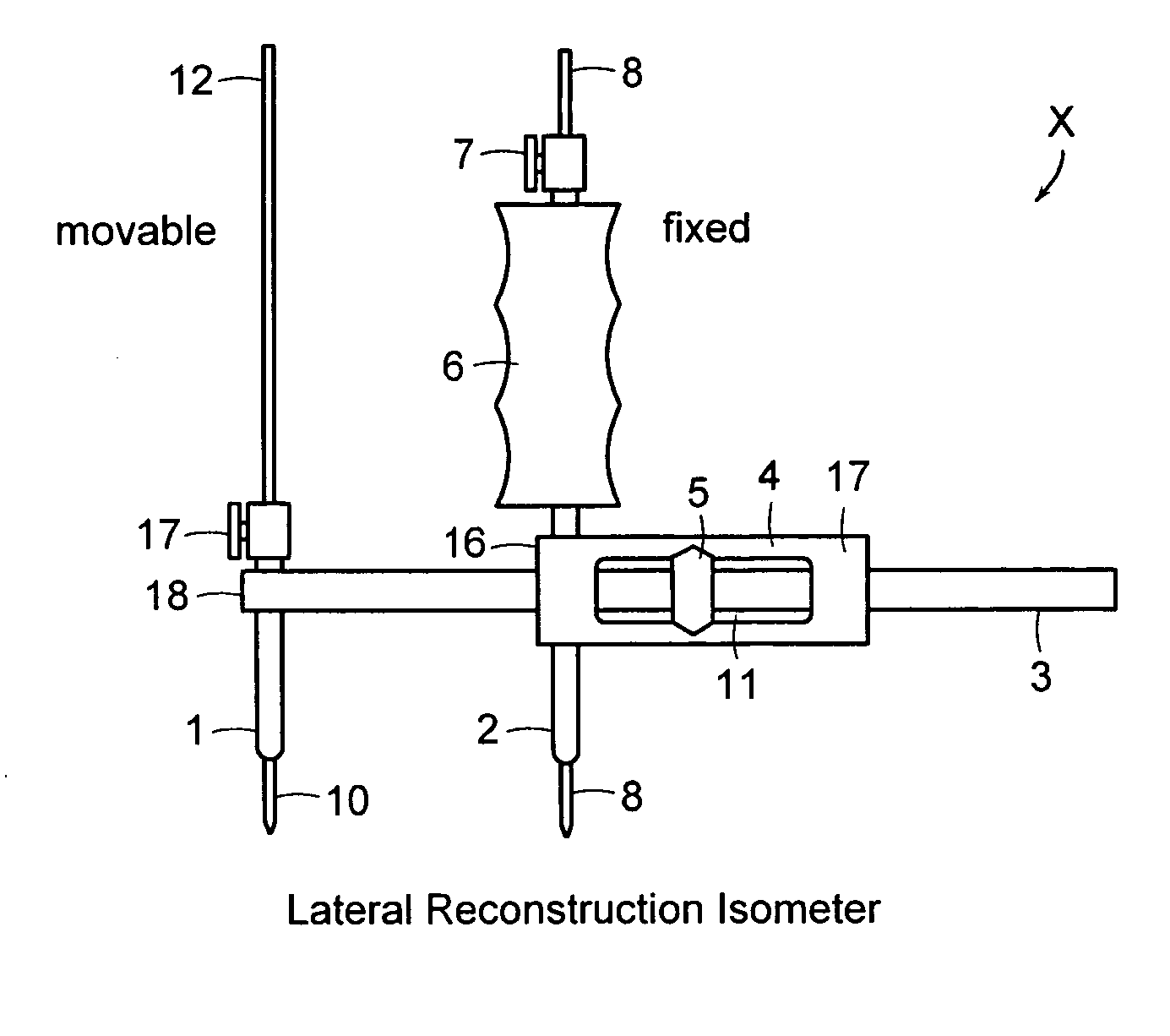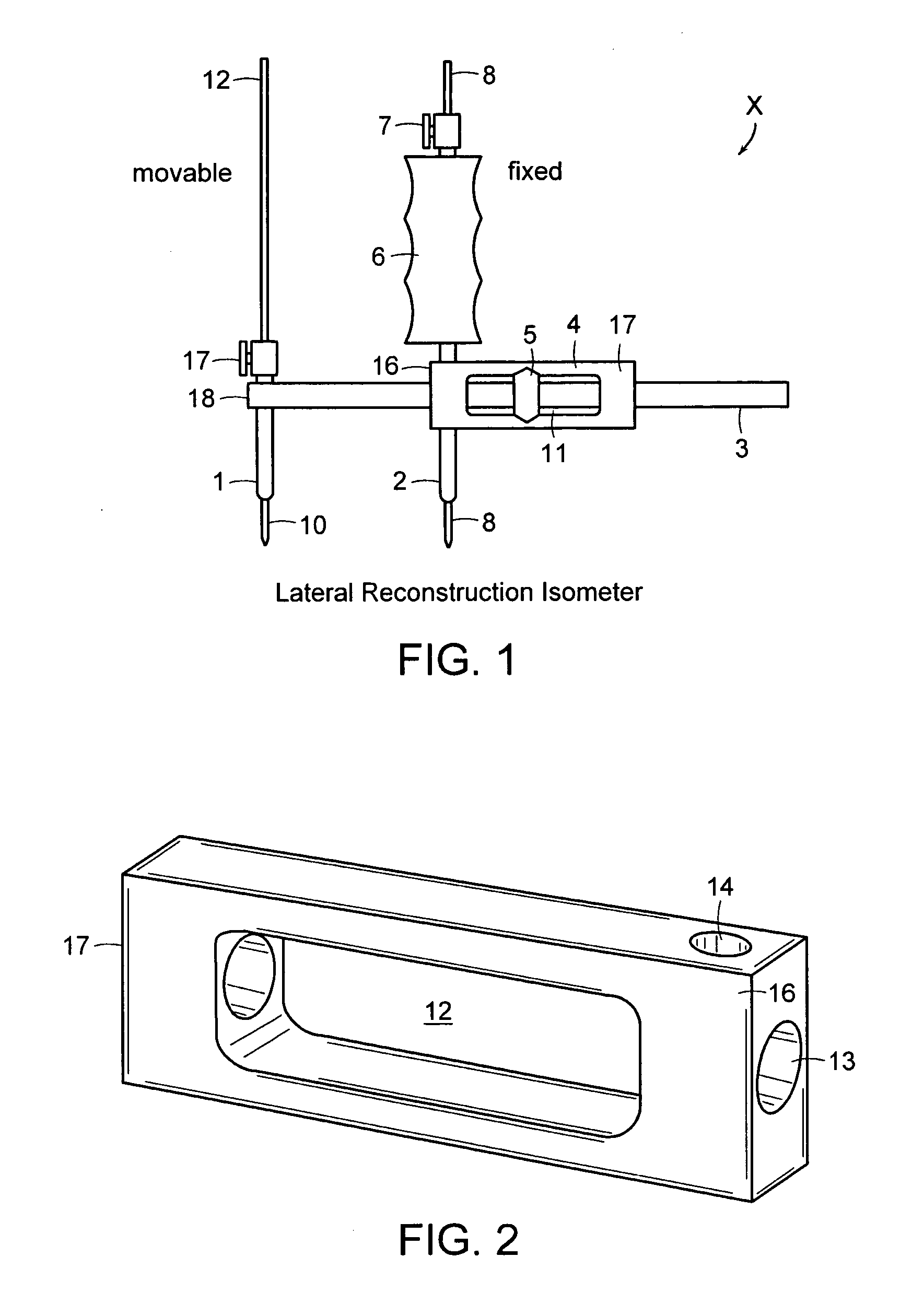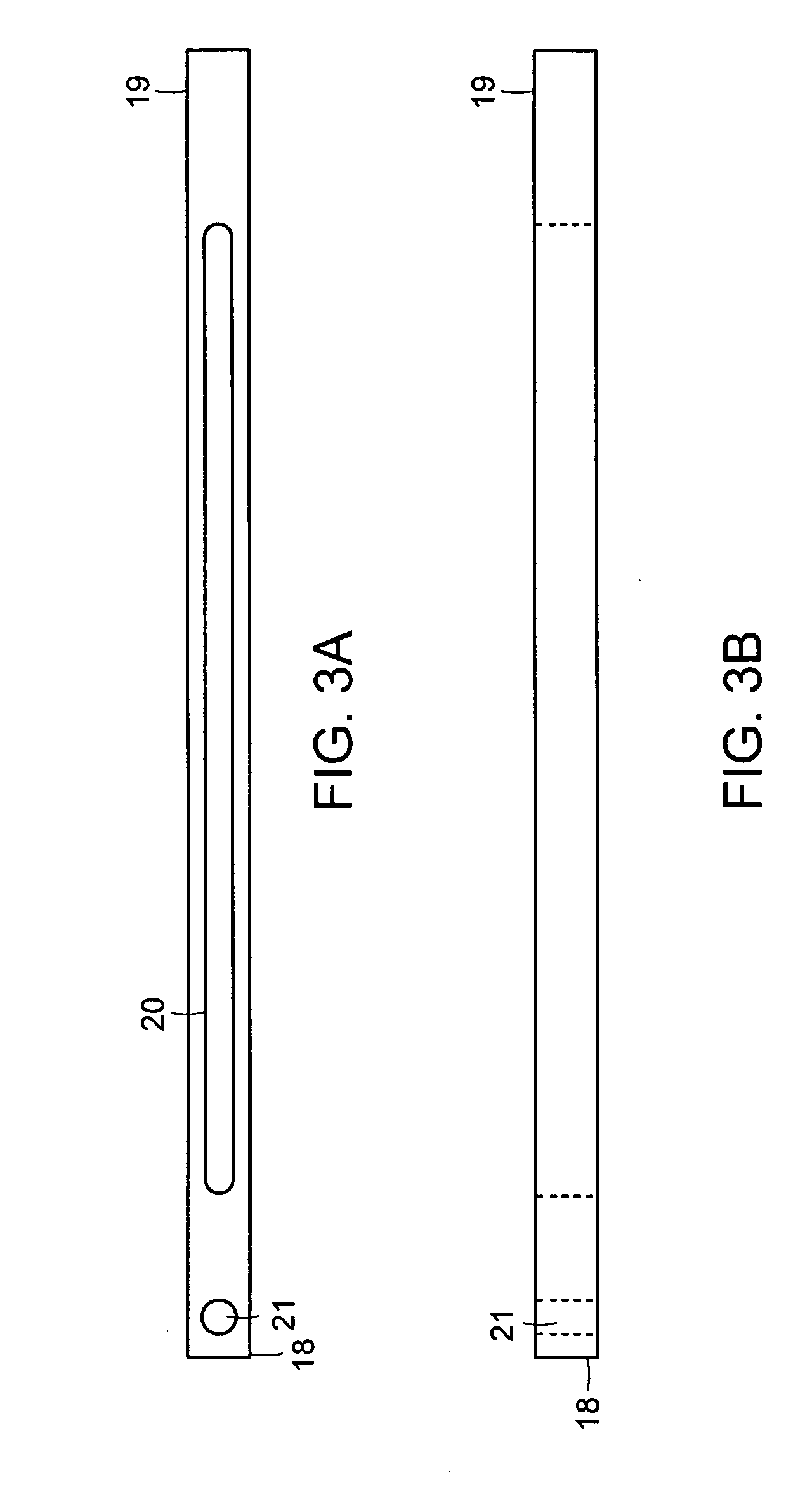Surgical device for a anterolateral reconstruction
a surgical device and anterolateral technology, applied in the field of surgical devices and procedures, can solve the problems of reducing the time needed to determine lateral rotary isometry, and achieve the effect of eliminating guesswork and skill-intensive techniques
- Summary
- Abstract
- Description
- Claims
- Application Information
AI Technical Summary
Benefits of technology
Problems solved by technology
Method used
Image
Examples
Embodiment Construction
[0020] Referring now to FIG. 1, an isometer X having an elongated cannulated body 4, having a first end 16 and a second end 17, that encases a slider rod 3 with a pointer 5, further having a fixed stylus 2 and corresponding guide pin 8, and a movable stylus 1 and corresponding guide pin 10, is designed for use in determining lateral isometry for restoring rotary and anterior knee stability in combination with ACL reconstruction.
[0021] The slider rod 3 has a first end 18 and second end 19 and a longitudinal slot 20 (see FIG. 3A for slot 20) running nearly the length of the rod, and slides horizontally within the hollow elongated body 4. There is also a hole 21 (see FIG. 3B) in first end 18 wherein the movable-stylus guide pin 10 slides vertically within the cannulated movable stylus 1, and is attached transversely through the first end 18 of the slider rod 3. Encircling the slider rod 3 is a pointer 5 that slides with the slider rod 3 but whose position along the slider rod 3 may al...
PUM
 Login to View More
Login to View More Abstract
Description
Claims
Application Information
 Login to View More
Login to View More - R&D
- Intellectual Property
- Life Sciences
- Materials
- Tech Scout
- Unparalleled Data Quality
- Higher Quality Content
- 60% Fewer Hallucinations
Browse by: Latest US Patents, China's latest patents, Technical Efficacy Thesaurus, Application Domain, Technology Topic, Popular Technical Reports.
© 2025 PatSnap. All rights reserved.Legal|Privacy policy|Modern Slavery Act Transparency Statement|Sitemap|About US| Contact US: help@patsnap.com



